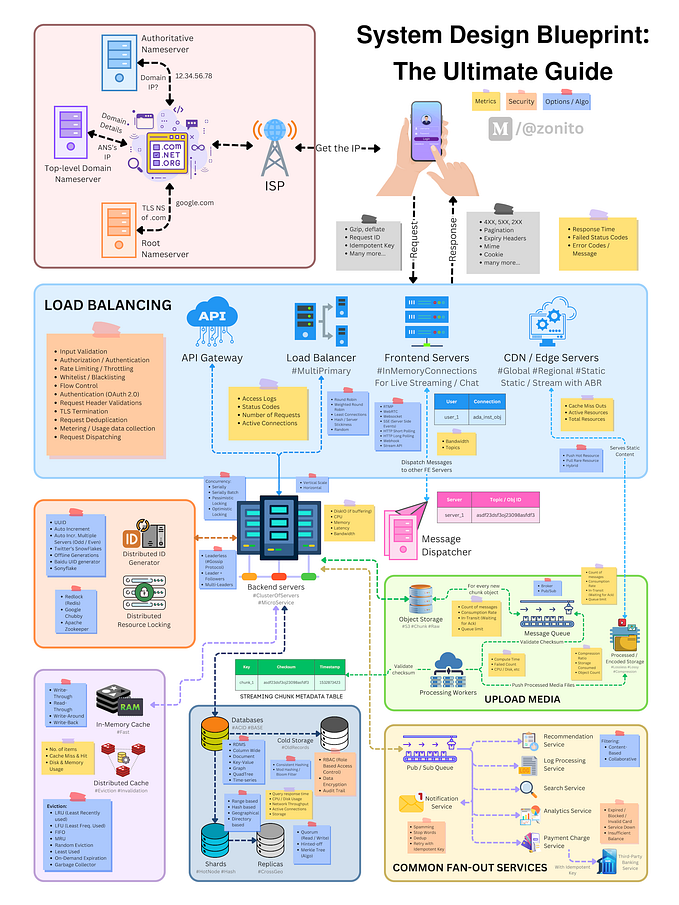Being a good Software Quality Assurance Engineer
Why big tech companies have huge budgets for hiring Quality Software Assurance Engineers.
Introduction
Software Quality Assurance (SQA) is a set of tools, practices, and processes applied to discover, validate, verify, monitor, and evaluate a piece of software to ensure its quality.
SQA stretches through all software development phases depending on the team, industry, or practices being followed and should not be confused with software testing. -Testing is a big part of Software Quality Assurance, but it is not, by any means, the only part of it.
The purpose of SQA is to make sure that all software engineering processes are monitored and comply with defined standards.
This is achieved by incorporating software development processes starting from defining requirements to coding until release/launch where the key goal is to ensure the quality of the software product.
Who is a Software Quality Assurance(SQA) Engineer?
An SQA Engineer carries out Software Quality Assurance in the software development process to ensure the quality of the final product.
This can include processes like;-
- Requirements gathering and documentation.
- Change, Configuration & Release management,
- source code control, review, and the actual testing of the software among other things.
Software Quality Assurance roles/titles in the business technology industry include;-
- Quality Assurance Analyst (QA Analyst),
- Quality Assurance Engineer (QA Engineer),
- Software Quality Assurance Engineer (SQA Engineer),
- Software Quality Engineer,
- Quality Assurance Director (QA Director),
- Software Quality Engineer,
- Product Assurance Engineer,
- Software Test Engineer.
Skills & Qualities of Good SQA Engineers
Attention to detail & Near Vision
The role of an SQA Engineer involves being thorough and detail-oriented (the ability to see details at close range) in order to spot issues or discrepancies in quality standards set for the product.
Information Ordering
SQA Engineers should be able to arrange things or actions in a certain order or pattern according to a specific rule or set of rules (e.g., patterns of numbers, letters, words, pictures, or mathematical operations).
Inductive & Deductive Reasoning
SQA Engineers should be able to combine pieces of information to form general rules or conclusions (including finding a relationship among seemingly unrelated events) as well as apply general rules to specific problems to produce answers that make sense.
Problem Sensitivity & solving skills
Throughout the life cycle of a product, issues will arise. SQA Engineers should have the ability to tell/recognize when something is wrong or is likely to go wrong accompanied by strong problem-solving skills as well as developing plans to solve those issues.
Written Comprehension & Expression
SQA Engineers should have the ability to read and understand information or ideas presented in writing as well as communicate information and ideas in writing for team members to understand.
Good listening & strong communication skills(Oral Comprehension & Expression)
Good SQA Engineers should be able to listen and understand information and ideas presented through spoken words and also be effective speakers since they are required to communicate with all parties involved(stakeholders, management, and developers) throughout the development process of a product.
Good time management
Since SQA Engineers have to balance multiple tasks throughout the day, it is important to have strong time management skills to ensure productivity and meet key deadlines and milestones.
The ability to write test plans
A test plan is a document detailing the objectives and testing processes that will be applied to the software product. SQA Engineers work with other developers and stakeholders to develop this testing strategy.
An understanding of test automation tools and manual testing practices
It is helpful for SQA Engineers to be familiar with different automated testing tools as well as how to effectively test products to identify bugs.
Strong understanding of the Software Development Life Cycle
A good SQA engineer should understand the full life cycle of software products to effectively plan and test them.
What SQA Engineers Do.
When software problems and their causes are identified, SQAs are often tasked with the design, development, and execution of software test plans, scripts, and testing programs among other things:-
- SQA Engineers participate in product design reviews to provide input on functional requirements, product designs, schedules, or potential problems as well as conduct software compatibility tests with programs, hardware, operating systems, or network environments.
- SQA Engineers occasionally plan test schedules or strategies in accordance with project scope or delivery dates and test system modifications to prepare for implementation or even install, maintain, or configure software production, training & UAT environments to allow testing of software performance and acceptance.
- SQA Engineers will be involved in activities like evaluating or recommending software for testing, bug tracking, conducting historical analyses of test results, updating automated test scripts to ensure testing accuracy, designing or developing automated testing tools, and also coordinating user or third-party testing.
- They will then review software documentation to ensure technical accuracy, compliance, or completeness, and provide feedback and recommendations to developers on software usability and functionality to mitigate risks.
- SQA Engineers can also investigate customer problems referred by technical support and collaborate with field staff or customers to evaluate or diagnose these problems and recommend possible solutions.
- SQA Engineers will be part of a team that monitors bug resolution efforts and track successes by creating or maintaining databases of known test defects as well as performing initial debugging procedures by reviewing configuration files, logs, or code pieces to determine the breakdown source.
- SQA Engineers will sometimes monitor program performance, identify program deviance from standards, and where necessary develop or specify standards, methods, or procedures for efficiency, and problem-free operations to determine product quality or release readiness or suggest modifications to ensure compliance.
- SQA Engineers can also analyze, and document test procedures to ensure replicability and compliance with standards.
Some SQA Engineer’s best practices
- Set testing goals and requirements.
- Establish a clear workflow.
- Always check industry standards compliance.
- Combine automated and manual testing.
- Implement risk-based testing.
- Perform frequent regression testing. (Regression cycle)
- Set up the right environments; -Talk to end-users and simulate their environment, Mimic the developer environment this was SQAs and Developers use the same environment for running tests. (Feedback and user acceptance are very critical).
Conclusion
Software Quality Assurance is very key for a lot of companies especially those rolling out software products as it ensures, quality adherence according to a set of agreed-upon standards.
Software Quality Assurance (SQA) engineers and testers have an eye for detail and are committed to improving the performance of the products (e.g Software) they work on by ensuring that the software packages shipped out meet or exceed the customer’s expectations in performance and value.
SQA Engineers carry out Software Quality Assurance through tasks like software design, writing source code, control of source code, reviewing code, configuration management, change management, program testing, integration of software, and release management process.








